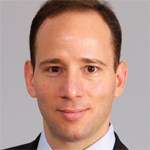Crisis shakes up the competitive landscape
While damaged counterparty status has driven some banks back from the foreign exchange market, those with healthier balance sheets are expanding their offering. Philip Alexander reports.
In 2009, foreign exchange (FX) has become a business of choice, even for banks that once regarded it as the less glamorous cousin to the fixed-income and equity businesses. Spot and short-dated FX is far less demanding on the balance sheet or in value-at-risk calculations than fixed income, and daily turnover is about 10 times that of global equity markets.
It is also a market that offers two-way prices, even during periods of dislocation, because the bulk of the business is driven by exporters and importers in any given country who have opposite needs. This dynamic is proving attractive to investors at a time when other markets may be more difficult to enter and exit.
"Currencies allow you to express multiple views, for example on central bank interest rates or economic growth, through a liquid and transparent two-way market with a good number of counterparties," says Frederic Boillereau, who was appointed global head of foreign exchange and metals at HSBC in April 2009.
New growth areas
The appeal to investors is important, because volumes of corporate business have inevitably fallen alongside the decline in global economic growth and trade. Market participants estimate that the total fall in FX traded volumes since the economic downturn began at about 30% to 40%. "Normally, company projections for exports might have a forecasting error of +10% or -10%. But if you were, for example, an Asian shipbuilder in the past year, that might have reached 80%," says Zar Amrolia, global head of FX at Deutsche Bank in London.
However, this fall in corporate hedging volumes has been counteracted by the higher volatility, which favours market-makers by driving up bid-ask spreads and the premiums charged on FX options. The sheer diversity of the FX offering and client base also helps banks to sustain revenues from non-corporate sources. Mr Boillereau has seen a pick-up in activity from the private client wealth management side. Hedge funds that previously focused on equities are beginning to move into FX investing, although the benefits of this for the banks have been partly offset by the decline in total hedge fund assets under management.
Mr Amrolia says that pension funds are also beginning to look at FX-linked products as a diversifier, because returns are not correlated to equity markets and are generally steadier - the bank launched a fund offering exposure to its benchmark DBCR and currency returns index in a UCITS III-compliant format in September this year.
Finally, FX desk revenues have benefited from a significant increase in central bank activity on the foreign exchange markets, as monetary authorities intervene to stabilise their currencies and alter the composition of reserves to avoid any excessive operational losses. The size of this client segment makes FX markets unique.
Eric Auld, global head of FX and hybrids at BNP Paribas
Changing landscape
The impact of these changes in client activity has not affected all banks alike. In line with all derivatives markets, the collapse of Lehman Brothers in September 2008 forced participants to reconsider counterparty credit risk as a component in FX forwards, futures and options.
"Real money clients such as pension funds, central banks and asset managers are monitoring not just credit ratings, but the level of credit default swaps, and allocating in a very scientific fashion based on how strong financial stability indicators are, so we have managed to bring on board clients who felt they were overbroked with other banks," says Francois Boisson, head of institutional client FX sales at BNP Paribas in London.
As a result, those banks which have comparatively healthy balance sheets and capital bases, and are not going through rationalisation after a state bail-out, have been able to pick up market share. Given the reliable revenues on offer, one banker working for a top five FX player says there are at least another five "desperate" to break into that group.
Eric Auld, global head of FX and hybrids at BNP Paribas, is open about his bank's ambition to do just that. He says that the bank's retention of AA ratings has restricted the decline in volumes for his bank to just 15%, far outperforming the wider market.
"Some new clients were calling us saying they wanted to do business and wondered why we had not called already," says Mr Auld. He adds that the Fortis acquisition has strengthened BNPP's franchise with central banking clients.
Of course, balance sheet strength is not governed by size alone, and some of the highly rated smaller players are making significant inroads. One is Canada's RBC Capital Markets (RBCCM), which in the past two years has expanded its natural speciality in other commodity currencies such as the Australian dollar, Norwegian kroner and South African rand to establish a full global FX presence.
"Our fixed-income and currencies revenue contributions now are about 40% from Europe, 25% from Canada and the US and 10% from Australasia," says Harry Samuel, co-head of fixed income and currencies and head of global treasury services at RBCCM.
The bank has taken advantage of hiring opportunities and credit ratings that include a rare Aaa from Moody's, but Mr Samuel also emphasises the importance of a strong platform and the bank's focus on the role of FX on the balance sheet.
"For pure spot markets, it is all about insight and execution, but once you start to add in forwards and cross-currency swaps, you add in a credit element. We recognised that a forward is really a cross-currency swap with an exchange of principal at both ends of it, so we spent the lean bid-ask years up to 2007 developing the technology to trade these instruments in a way that was rooted in how volatility in the FX markets could flow through balance sheets and liquidity. That helped us make sure we never withdrew from the markets during the crisis," he says.
Ed Monaghan, head of global FX for RBCCM, says the bank had steered clear of exotic FX derivatives, preferring to focus on its core strengths in the spot and forwards markets. This strategy has proved auspicious, as some competitors, together with their clients, had found the profit and loss and correlation risk of exotic products very difficult to manage during the peak in volatility.
Meanwhile, for HSBC, which is already a leading player in FX due to its global presence on the ground, continued strong counterparty status has even seen volumes increase, according to Mr Boillereau.
"Of course, you need the investment in technology to supply worldwide pricing and information such as research and flow data. That global platform creates volumes, which help offer better pricing. But you also need the client base in the first place to justify the investment in that platform," he says.
Harry Samuel, co-head of fixed income and currencies and head of global treasury services at RBCCM
Electronic trading
As volatility returns to more normal levels and the scramble for market share continues, there is growing attention on market infrastructure, including electronic trading.
"As bid-ask spreads on all major currencies and products have come in to levels last seen before August 2007, liquidity aggregation has become increasingly important to show the tightest spread on the greatest amount of depth, especially for high-frequency clients," says Mr Samuel.
As the continued market leader in FX, Deutsche Bank is seeking to maintain its leadership in catering for the most sophisticated and high-frequency clients, bringing across to FX some of the algorithmic trading technology that is already widespread in the equity business.
Those banks with a strong corporate FX franchise are now looking to develop their own prime brokerage activities for the asset class. HSBC is preparing to launch a dedicated FX prime services operation in 2010, in line with the bank's overall prime services initiative. BNP Paribas has acquired the AIG prime brokerage, bringing with it nine staff and intellectual property rights. Mr Auld says that BNPP hopes to roll out the new combined operation in the first quarter of 2010.
In Deutsche Bank's case, electronic services are also being rolled out further into emerging markets, through intermediary banks that have local branch networks. "The obvious demand that kicks in first is our global network to settle trades and banks link up to that immediately. In certain emerging markets, there is demand for our more complex products, for instance solving credit problems, or sophisticated investing in those markets where there is a big pool of cash," says Jason Shell, global head of FX sales to corporates.
Over time, Mr Amrolia expects that business will divide between what he calls "financial" foreign exchange and "classic" corporate FX. The former is for investment purposes, so it can be non-deliverable and cleared centrally. The latter will still need to be settled physically, incorporating a credit component that will need to be priced into the transaction.
Mr Samuel says that the corporate client business itself is bifurcating between transactional and strategic FX. "The transactional activity would tend to be executed on an electronic system or through portals such as FXAll or FXConnect, but the strategic activity that tends to have more market sensitivity associated with it will still be executed on a voice coverage basis," he says.




